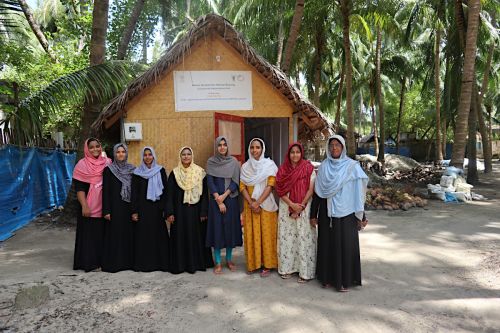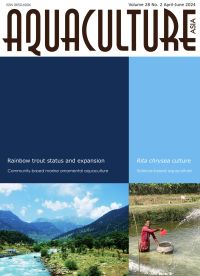Community participation in marine ornamental aquaculture: Empowerment of women and conservation of reef ecosystems at the Lakshadweep Islands
25 June 2024 | Deepa Dhas, D.S., T.T. Ajith Kumar and Uttam Kumar Sarkar | 772 Downloads | Gender, Hatchery and nursery, India, Livelihoods, gender and social issues, Ornamentals
Promoting and encouraging community participation in marine ornamental aquaculture presents an alternative approach to enhancing the economic status of marginalised individuals, particularly women, in the Lakshadweep islands. Additionally, it aids in curbing the wild capture of marine ornamental organisms, thereby relieving pressure on natural resources.
This initiative is spearheaded by the ICAR-National Bureau of Fish Genetic Resources as part of a socio-economic endeavour aimed at offering nature-based solutions for conserving and managing wild ornamental organisms. The coral reef ecosystem, the largest living marine repository, harbours an incredibly diverse range of species, crucial for sustenance, income, and cultural identity. Nevertheless, this intricate and productive ecosystem faces threats from both natural occurrences and human activities, prompting concerns regarding its sustainability and resource management.
This article examines the strategy of community-based marine ornamental aquaculture and its significance in bolstering the economy of islanders, particularly women, in the Lakshadweep Sea. It seeks to investigate effective approaches to promote the sustainability of the coral reef ecosystem in the region. The initiative is guided by the following objectives: (a) conservation of marine biodiversity, (b) sustainable utilisation of biodiversity, and (c) equitable sharing of benefits arising from this initiative.
High-value marine ornamental organisms, such as fishes and shrimps, are cultivated in community aquaculture units using simplified technology. These organisms are supplied to aquarists and hobbyists, thus supplementing the income of local women islanders.
Creative Commons Attribution.

